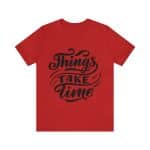Self-reflection is a powerful tool in our personal development arsenal. It’s about taking a step back to think about our thoughts, feelings, and behaviors. Why is this important? Because understanding ourselves better leads to improved control over our reactions and decisions. Here’s a guide to harnessing the art of self-reflection, helping you analyze and control your thoughts more effectively.
Understanding Self-Reflection
Self-reflection is the ongoing act of examining our thoughts, feelings, and motivations. It involves asking ourselves probing questions about our experiences and emotional responses. This practice isn’t just about introspection; it’s about gaining clarity and control over how we think and respond to situations.
That may seem challenging because most people will never do it. Many experience a constant bombardment of ideas from external sources. They also tend to have inner dialogues that run amok. It requires practice to acquire the ability to filter out useless thoughts.

The Benefits of Self-Reflection
Four primary benefits happen for anyone who practices self-reflection. Each of them has the potential to be a game changer. The best part is that embracing the changes needed to tap into the advantages is simple.
- Improved Emotional Intelligence: By understanding our emotions, we can manage them more effectively.
- Better Decision-Making: Clarity in thought leads to better choices.
- Increased Self-Awareness: Knowing ourselves better helps in personal growth.
- Enhanced Problem-Solving Skills: Analyzing our thoughts lets us approach problems more informally.
With these enhanced skills, you will be far more capable of handling significant challenges. If you feel like you need to get ahead, it’s worthwhile using self-reflection to help you achieve your goals.
Techniques for Effective Self-Reflection
- Set Aside Time: Dedicate a few minutes each day for self-reflection. Consistency is key.
- Find a Quiet Space: Choose a peaceful place where you won’t be disturbed.
- Ask Yourself Questions: Start with questions like, “What did I do well today?” or “What could I have done differently?”
- Write It Down: Journaling can help organize your thoughts and track your progress.
- Practice Mindfulness: Be present in the moment. Mindfulness helps in observing your thoughts without judgment.
Analyzing Your Thoughts
To control your thoughts, first, you need to understand them. When a thought arises, begin with the question:
- Is this thought based on facts or assumptions?
- How does this thought make me feel?
- Is this thought helping or hindering my progress?
By dissecting your thoughts, you become more aware of patterns and can work on changing negative thinking habits.
Tips for Controlling Your Thoughts
Five tactics can help anyone gain further control over their thinking. Incorporating these strategies is the beginning of you empowering yourself. With control of your thoughts, random ideas won’t damage or kill your motivation.
- Challenge Negative Thoughts: When you first notice a negative thought, challenge its validity.
- Focus on the Positive: Find a positive angle in every situation.
- Practice Gratitude: Regularly think about things you’re grateful for.
- Learn from Mistakes: Instead of dwelling on them, consider them learning opportunities.
- Embrace Change: Be open to changing your thought patterns. It’s a journey, not a destination.
Embracing change is a way to shed your past attitudes. Stay open-minded and look for new ways to express yourself. It’s always beneficial to learn new skills, so make it a point to do it.
It’s Time to Start Your Journey
Mastering the art of self-reflection is a journey of personal discovery and improvement. Regularly analyzing and controlling your thoughts can achieve greater control over your emotions and reactions. Remember, the goal isn’t to be perfect but to be a better version of yourself. Embrace the process, and you’ll be amazed at how much you can grow.
Frequently Asked Questions About Self-Reflection
Ideally, self-reflection should be a daily practice. Even just 5-10 minutes each day can make a significant difference. However, the key is consistency, so find a frequency that fits comfortably into your routine.
It’s normal to encounter negative thoughts during self-reflection. The goal is not to avoid these thoughts but to understand and reframe them. Acknowledge these thoughts, explore their roots, and gently guide your focus towards more positive or constructive thinking.
Yes, self-reflection can be a valuable tool in managing anxiety. It helps you understand your triggers and develop coping strategies. However, it’s important to remember that self-reflection is just one part of a broader anxiety management plan, which might include therapy, medication, or other treatments.
Absolutely! Journaling is a popular tool for self-reflection. There are also digital apps designed for journaling and mindfulness that can guide you through the self-reflection process. Additionally, some people find meditation or guided imagery helpful in focusing their thoughts for deeper self-reflection.





